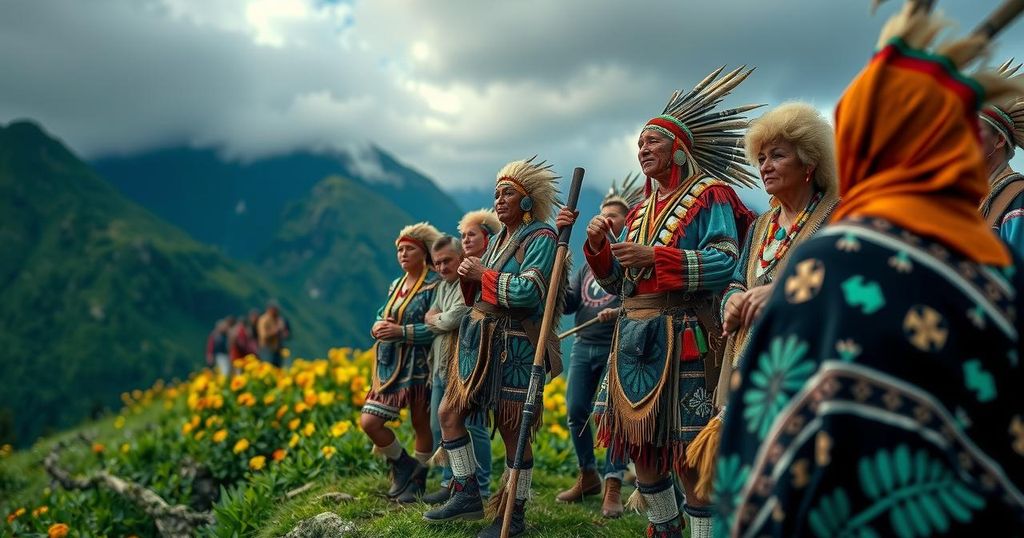Indigenous peoples at COP29 in Baku, Azerbaijan, share alarming accounts of climate change impacts on their communities, including rising seas and droughts. They also highlight their traditional ecological practices that contribute to combating climate change. The discussions underscore the need for integrating Indigenous knowledge into climate action plans.
At COP29 held in Baku, Azerbaijan, Indigenous representatives conveyed grave concerns regarding the dire impacts of climate change on their communities. Many shared poignant narratives of increasing sea levels, deforestation, water contamination, and public health challenges. Despite these challenges, they also highlighted local solutions and traditional ecological knowledge that their communities harness to address climate change effects. Indigenous practices, developed over millennia, are essential in preserving ecosystems and maintaining biodiversity, thereby combating global warming effectively. The annual U.N. climate discussions provide a vital platform for Indigenous voices, especially as they often bear the brunt of climate-induced weather extremities. Their perspectives not only underscore the urgency of climate action but also showcase the resilience and adaptability embedded in their cultures. Participants shared their unique experiences and insights on how their communities are tackling climate change, stressing that they possess valuable solutions that Western paradigms often overlook. It was evident throughout the discussions that Indigenous knowledge holds the key to sustainable environmental stewardship.
Indigenous communities across the globe are significantly impacted by climate change, not only facing the immediate threats it presents but also contributing to solutions informed by centuries of ecological wisdom. The annual U.N. climate talks serve as an essential venue for these communities to advocate for their needs and emphasize the importance of their traditional practices in addressing environmental challenges. This intersection of cultural knowledge and modern climate discourse is critical as nations seek to mitigate climate impacts and promote sustainability. Indigenous voices rich with experience often present holistic approaches to combatting climate change, fostering essential dialogue at international forums.
In summary, the Indigenous voices attending COP29 reinforced the urgent message of the devastating impacts of climate change on their communities, while also offering culturally rooted solutions and practices that can aid in the global fight against environmental degradation. Their insights emphasize the importance of integrating Indigenous knowledge into broader climate action strategies to ensure effective and meaningful solutions to one of the most pressing issues of our time.
Original Source: www.sfgate.com






